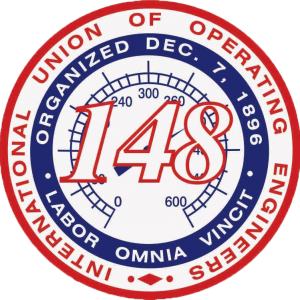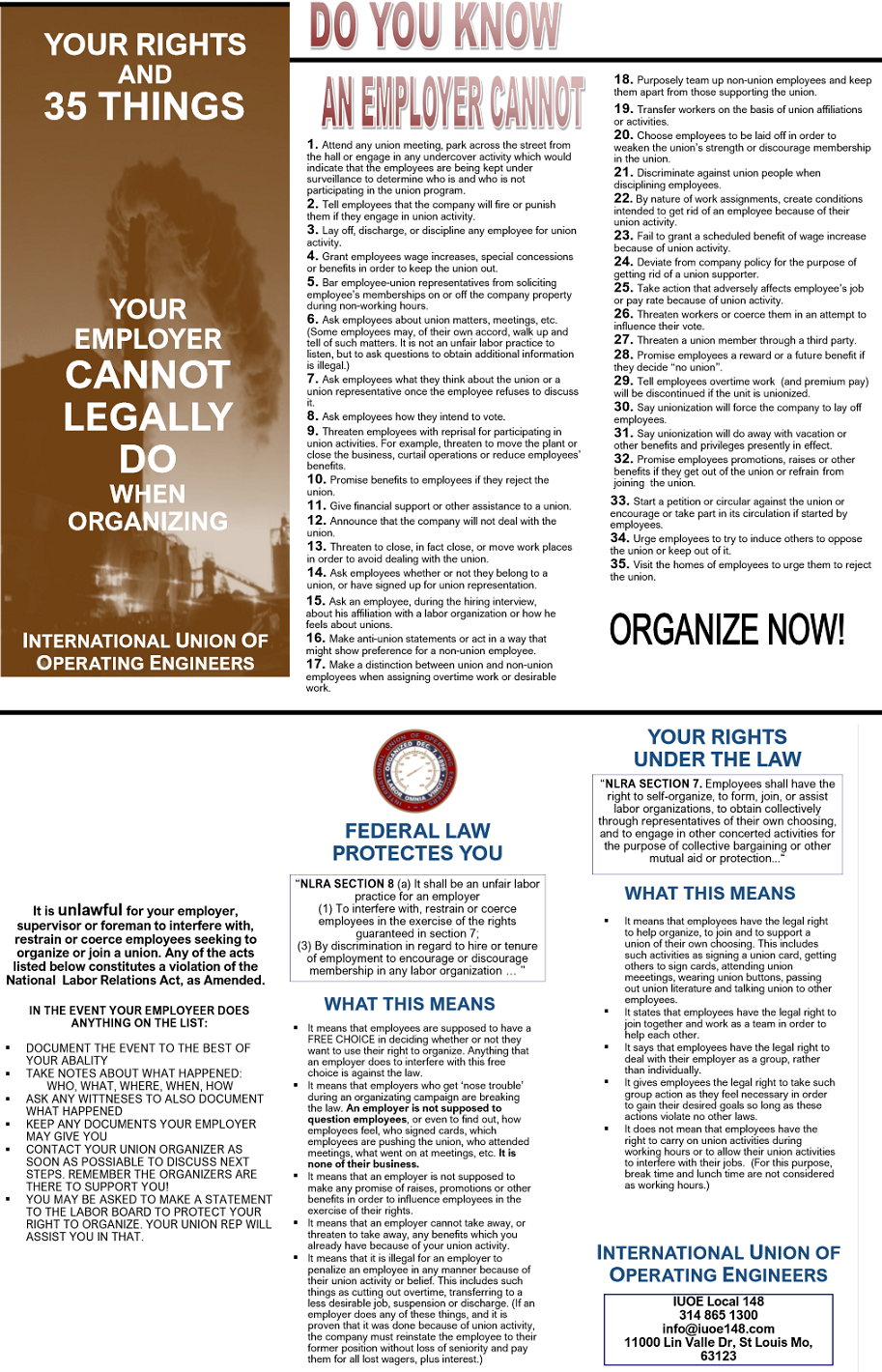Forming a union in your workplace gives you and your coworkers the right to negotiate collectively with your employer over wages, benefits, working conditions, as well issues that may be specific to your workplace. A union contract is a legally binding document where these agreements are put in writing. Having a union gives you a voice in your workplace.
If you would like guidance and assistance in organizing your workplace, please reach out to one of our organizers. We will be happy to answer questions you may have and help in your fight for fairness in the workplace.

Your Rights under the Law.
NLRA Section 7:
“Employees shall have the right to self-organize, to form, join, or assist labor organizations, to obtain collectively through representatives of their own choosing, and to engage in other concerted activities for the purpose of collective bargaining or other mutual aid or protection…”.
What This Means
- Employees have the legal right to help organize, to join and to support a union of their own choosing. This includes activities such as signing a union card, getting others to sign cards, attending union meetings, wearing union buttons, passing out union literature and talking about a union to other employees.
- Employees have the lega right to join together and work as a team in order to help each other.
- It says that employees have the legal right to deal with their employer as a group, rather than individually.
- It gives employees the legal right to take such group action as they feel necessary in order to gain their desired goals so long as these actions violate no other laws.
- It does not mean that employees have the right to carry on union activities during working hours or allow their union activities to interfere with their jobs. (For this purpose, break time and lunch time are not considered working hours).
federal law protects you
NLRA Section 8:
“(a) It shall be an unfair labor practice for an employer
(1) To interfere with, restrain or coerce employees in the exercise of the rights guaranteed in section 7;
(3) By discrimination in regard to hire or tenure of employment to encourage or discourage membership in any labor organization … ”
What This Means
- It means that employees are supposed to have a FREE CHOICE in deciding whether or not they want to use their right to organize. Anything that an employer does to interfere with this free choice is against the law.
- It means that employers who get ‘nose trouble’ during an organizating campaign are breaking the law. An employer is not supposed to question employees, or even to find out, how employees feel, who signed cards, which employees are pushing the union, who attended meetings, what went on at meetings, etc. It is none of their business.
- It means that an employer is not supposed to make any promise of raises, promotions or other benefits in order to influence employees in the exercise of their rights.
- It means that an employer cannot take away, or threaten to take away, any benefits which you already have because of your union activity.
- It means that it is illegal for an employer to penalize an employee in any manner because of their union activity or belief. This includes such things as cutting out overtime, transferring to a less desirable job, suspension or discharge. (If an employer does any of these things, and it is proven that it was done because of union activity, the company must reinstate the employee to their former position without loss of seniority and pay them for all lost wagers, plus interest.)


